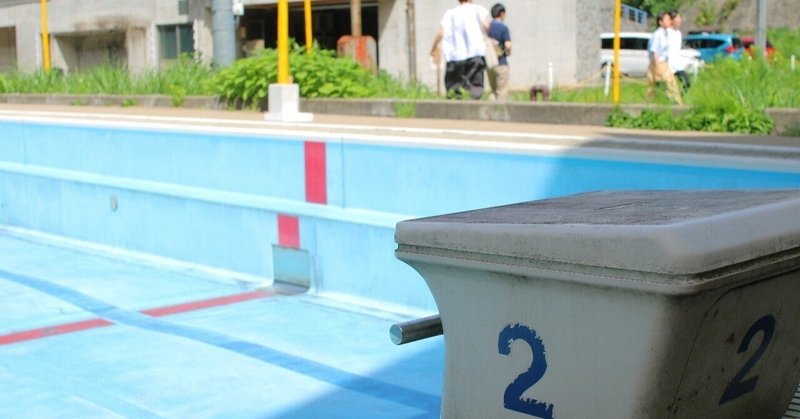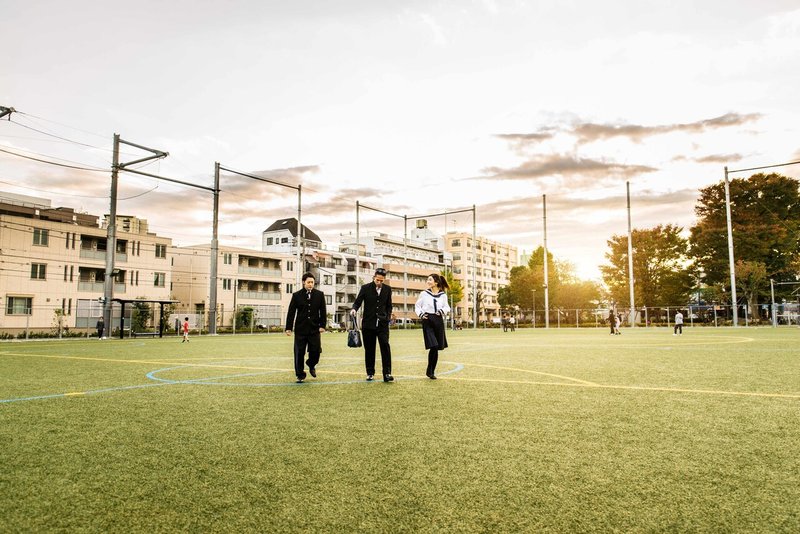
部活のない国から来た僕が、日本の部活をとおして学んだこと
*See below for the English version.
こんにちは!カビルです。
中学2年生の時にネパールから日本にきて、今は専門学校に通っています。
日本では、スクールライフを送る上で部活動がとても大切にされており、またほとんどの生徒が何かしらの部活に所属しています。この事実は、部活の文化がないネパール出身の僕にとっては、とても驚きでした。
学校で先生といっしょに、放課後や休日も1年中活動するというスタイルは、世界的にも珍しいそうです。
ネパールでは学校が運営する部活はなく、生徒は学外で興味のある同世代のサークルに参加したりします。学校は、生徒に関する問題がない限り、サークルの活動には基本干渉しません。活動内容などはサークルによりますが、メンバーがよく変動したりいくつかのサークルが混ざって活動を行うことがあるなど、学校よりもコミュニティベースでフレキシブルです。
生徒も「部活こそ青春」と言ったりするのは、僕は少し大げさだなと思うのですが、僕自身も、中学・高校で楽しい部活の思い出がたくさんあります。今日は、そんな日本の部活動について、僕の感じたことや考えたことをシェアさせてください。また、日本に来たばかりで部活をどうしようか悩んでいる学生の助けにもなったら嬉しいです。
部活とは?
日本の学校では学校に登録された部活がいくつかあり、生徒は自分の興味関心に合った部活に参加することをすすめられています。
部活には、顧問の先生が積極的に指導にあたる場合、先生はいるが相談・見守り役という形で生徒らが自主的に運営する場合があったり、部活によって異なります(入部する前に、自分のライフスタイルと合っているかの確認が大切です!)。部活を自分で作ることもできます。
部活では、放課後の練習や会議などの活動を、週に1~数回行います。真面目な部活は、「朝練」をしたり、休日も含めて毎日練習をしたりすることもあります。大会などの、学外のイベントに参加することもあります。
部活は、大きくカテゴリーを分けると、運動部と文化部があります。
運動部には、サッカー、野球、バスケットボール、バレーボール、水泳、テニス、バドミントン、ダンスなど、日本で人気のあるスポーツがよくあります。中でも人気の、サッカーや野球などは、学校間の試合も盛んで、特定の学校が、全国に強豪校として知られていることも多くあります。
文化部には、文学、芸術、音楽(吹奏楽、合唱など)、言語、日本の伝統芸術(茶道・華道など)などがあります。文化部には、大会のイメージは少ないかもしれませんが、音楽の部活は、ものによって大会などがあります。運動部のように、吹奏楽・合唱などの全国大会に出て、強豪校として知られる学校もあります。
日本社会にとって、部活とは?
部活への参加は強制ではないことが多いですが、部活に参加する生徒の方が多数で、参加していない生徒は「帰宅部(きたくぶ)」と呼ばれたりします。
これは別に意地悪な意味ではないのですが、日本の学生にとって、なにかの部活に入っていることが、いかに当たり前かを表していると思います。
部活の機能:
・生徒が、スキルを学べる身近な場
・友だち作り・友だちと楽しく過ごす場
・リーダーシップや、チームワークの実践・成長の機会
部活の問題点(極端なケース):
ごく少数の部活では、いじめの場になってしまうこと、厳しすぎる上下関係、ブラック部活などの問題が時々あるようです。ニュースでは極端なケースが取り上げられますが、ほとんどの学校は、部活動をていねいに見守っています。僕は個人的には、このような問題を経験したり、身近で聞いたことはありません。
ブラック部活などに見られる体罰などは、昔はもっとよくあったと聞きますが、最近の学校は、部活動に参加する生徒の安全や幸せをより大切にしているのかもしれません。
僕の経験
全体的に部活動は、僕の日本での学校生活の大切な部分でした。
中学でも高校でも、とても楽しい思い出がたくさんあります。
中学生の時は英語部に入部しました。最初は放課後のゲームの時間がなくなり残念でしたが、その分、価値ある思い出ができました。週に数回、放課後の教室に集まり英語劇の練習をし、最終的には、部長が作ったストーリーの英語劇を、市役所でおひろめしました。

英語部での面白い思い出の1つは、後輩との関係性でした。僕は3年生として部活に入ったのですが、他の3年生は忙しく部活に入らないため、僕は珍しい存在でした。そのため2年生と仲良くなったのですが、何度頼んでも、仲良くなっても、敬語を解除してもらえませんでした。受け入れてもらっていることはわかったのですが、当時は変な感じがしました。
高校では2年次に、水泳部に入部しました。僕はまったく泳げませんでしたが、泳げるようになりたい気持ちを伝えると他の生徒が歓迎してくれました。ゼロから練習したのは僕だけでしたが、先生が時間をかけて教えてくれました。プールの水をたくさん飲んで、溺れそうになりながらでしたが、泳げるようになり、上達して大会に出たりもしました。
学外の大きな大会でチームメイトと一緒に仲間を応援したり、競い合ったりすることが、とても楽しかったです。結局、僕の高校時代の一番の仲良したちは、部活の友人です。一緒に努力して成長するという経験を通して、絆が深まったと思っています。
僕が部活について思うこと
僕が日本の部活文化についてまだ少し不思議に思うのは、厳しい先輩・後輩の上下関係だけです。
これは日本の学校生活全般に当てはまりますが、部活動では学年の違う生徒の交流が盛んなので、そういった上下関係を感じる場面が増えます。個人的には1〜3歳の年齢差は社会に出たらそこまで大きくないと思ってしまうのですが、もしかしたら学生にとっては先輩に責任感などを与える良い方法なのかもしれません。
厳しすぎたりしない限りは、グループの秩序を保つ方法として部活が機能しているようですし、日本では社会に出たときに周りや年長者を敬うことがとても大事なので、このような上下関係は学生にとっては良い練習の機会なのかもしれません。
スタッフのつぶやき
部活へのコミット具合がわからず部員ともめてしまう、放課後の時間に家の手伝い等(親や親戚の手伝いをしている子は多くいます)で部活に参加できないが言えずに指導される、ラフな距離感の方が相手に心を開いていると考え結果叱られてしまう等、日本の「当たり前」がわからない生徒は日本での学校生活に少なからず戸惑いを感じています。
自分達が理解できない、違和感を覚える行動に出会った時、「なんでこういう行動になったのかな?」「あの子の国では何が当たり前なのかな?」
ぜひ相手から見える世界を想像して、対話が生まれ、新しい学びや価値観との出会いが双方にあると嬉しいなと思います。
前述のように部活動の文化はより生徒に優しくなっているし、部活に参加することにはメリットしかないと思います。特に、自分のように外国から来た学生の場合はおすすめします。日本人の学生との絆を深め、日本語を練習したり文化交流をしたり、日本人が多数のコミュニティで一緒に生活する練習の機会です(後輩の敬語に慣れず、恥ずかしくなったりしながら)。
全体として、これらの活動を通じて僕が最も学んだことは、日本社会でとても大切な「みんなでがんばる」ということです。共通の目標に向かって、話し合ったり計画して、チームワークを通じて何かを達成することが、楽しく成果をあげられることを学びました。
最近は若い世代が一人で時間を潰したり、オンラインで趣味のことをする方法はとても増えています。でも部活は、日本の学生にとって大切なコミュニティとして機能しているため、部活文化は残り続けると思います。
これから部活に参加する方がいたら、ぜひ部活での時間を楽しんだり、部活の大切さを実感できたらいいなと思います。読んでくださりありがとうございました。

English ver.
My pitch for the Japanese School Clubs
Hi all! This is Kabir from Nepal, living in Japan.
If you are a student in a Japanese school system (or familiar with Japanese culture), you are probably aware that club activity is an important part of Japanese school life.
In this article, I will introduce the gist of clubs, what types of clubs there are and what you can expect from them, as well as my own experience in clubs in middle and high school.
What are School Clubs?
In Japanese schools, students are highly encouraged to join one or more clubs that fit their interests. Clubs are registered and overlooked by schools and have assigned teachers as supervisors, but each club has its own leadership structure, and is run by the students, for the students. Students can also create clubs themselves. Clubs usually conduct activities such as practices or meetings after school, once or several times a week. Serious clubs may even hold morning practices, or be active everyday or on weekends.
Clubs can be divided into 2 categories, at large - sports clubs and cultural clubs.
Sports clubs commonly include popular sports in Japan, such as soccer, baseball, basketball, volleyball, swimming, tennis, badminton and dance. For the most popular sports such as soccer and baseball, competition among the schools are especially rigorous, and some schools are nationally known for specific sports.
Cultural clubs may include academic and cultural interests, such as literature, art, music (orchestra, choir etc), languages and traditional Japanese arts (tea ceremony, flower ceremony etc). Music clubs may be the most competitive among the cultural clubs - many schools attend regional competitions, and a few schools are known nationally. Otherwise, there is a wide variety of club activities.
Overall, this culture was surprising to me, as Nepalese schools do not have clubs like here in Japan. Students who have particular interests join circles outside of school. Members of the circles organize activities, but it is not part of school activity, and the schools do not interfere (unless they become aware of the problems with the circle activities). The environment depends on the circle largely, and they may collect fees to cover the running costs. It is more community based than school based, and members fluctuate and several circles may conduct activities together.
Club Culture’s significance to Japanese culture/society
Although it is usually not required by schools, the majority of students join clubs, and they even have a nickname “Go-home Club” for students who do not join them. The nickname is used for fun and is not derogatory, but it shows how vital school clubs are for students in a Japanese system.
Pros of school clubs: I think clubs offer a few important functions to the students - easy access to skills and cultural resources, communal bonding, and leadership practice/ growth opportunities.
I will write more about it in the next section, from my own experience.
(Possible) Cons of school clubs:
Small minority of clubs may experience issues such as - breeding ground for bullying and hazing, hierarchy system among students of different grades, and practices or treatments of students by coaches/supervisors that are abusive or too rigorous.
Although we may hear about extreme cases on the news, most schools take a close look at club activities and such issues may have been more of the past. Any close-knit community may hold some risk of such issues (and in Japan, in a similar manner as how adults experience them in the workplace), but I have personally never experienced or heard stories of suh problems, and believe that the club culture is becoming less strict and more respectful and encouraging of the wellbeing of the students who participate in the club activities.
My experience
Overall, I would say that club activities did make up an important part of my school life in Japan. I enjoyed them a lot in both middle and high school.
I joined an English club for the first time, when I was a senior in middle school. I had a great time and though I was a bit sad at first, it was worth sacrificing my after school game sessions after all. Club activities consisted of after school practices, and at the end of the year, we performed a nice little play in the city hall on our own club leader's original story.2-3 times a week, we would convene at an assigned classroom and practiced.
A funny memory from the club was my relationship with younger students in the club - I was one of the rare seniors, as other seniors don’t tend to join clubs during the busiest year. I became close to 2nd year students, but they would not address me in regular speech (as opposed to respectful form of speech in Japanese) despite my asking them to. I took it as them being respectful, but it felt a bit weird at the time.
In high school, I joined the swimming club in my second year. I could not swim at all, but wanted to learn, and other students welcomed me, despite my being the only one who was learning from scratch. Although it was rigorous and I devoured a lot of chlorine water and almost drowned a few times in shallow water, I was proud of going through it. With direct coaching from the supervising teacher, I learned to swim and improved. We attended swimming competitions and events outside of the school, and those were nice bonding opportunities with teammates to compete or cheer together as a team. My closest friends through high school ended up being from this club, as we bonded through the common experience of pushing ourselves and growing together.
My Opinion on Club Activities in Japanese Schools
The only thing I feel is a bit strange about club culture is the strict age hierarchy among students. Although this is true in general about Japanese school life, club activities are one place where students of different grades interact the most. I personally think that one to three years of age difference does not make a lot of difference in the real world, but maybe it is a way to give the older students a sense of responsibility to the younger students. As long as it does not serve to give a sense of unearned power to the older students, I can see how it is a way that communities keep order within themselves. Maybe it is a good practice for students going into the real world, specifically in Japan, where one’s manner around showing respect matters a lot.
Otherwise, as mentioned, the culture around club activities are becoming more concerned about the wellbeing of the students. With this, I would say that there are only benefits to joining clubs and highly recommend it, especially if you are a student from abroad. It would be a great opportunity to bond with Japanese students and improve your Japanese, maybe have some cultural exchange, and get a sense of how majority-Japanese communities run (maybe you will get your practice of receiving respect from younger students, just because.)
Overall, what I learned the most through these activities is the value of “effort for the team”, which is a very significant lesson in Japanese society. You will learn to work hard towards a common goal, and through discussions and planning, you will learn how fun and effective it is to achieve something through teamwork and joint effort.
Although there are more ways to spend time alone and learn hobbies for the youth these days, I think the significance of the club culture in Japanese schools remains, as they serve as important communities for the students - maybe even more so. I hope that all of my readers can enjoy their time in clubs or understand its significance to Japanese culture.
